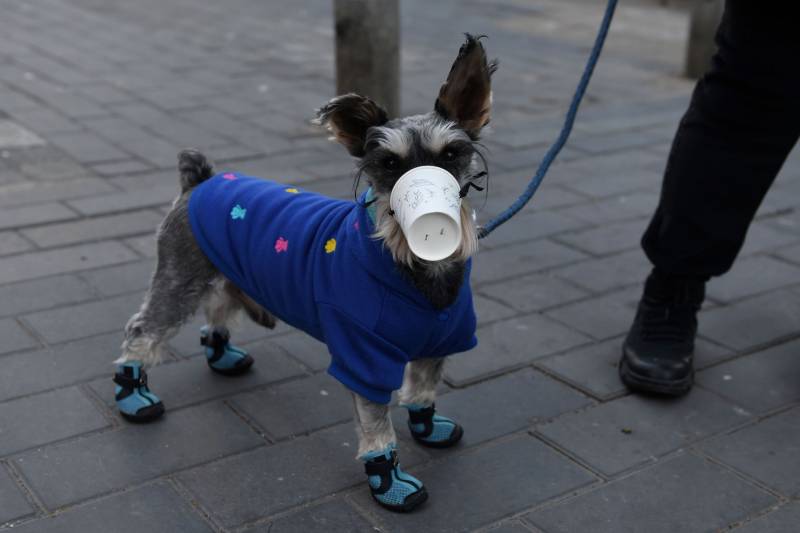For most people, family health is top of mind during this pandemic. For many, that includes furry housemates like dogs, cats, rabbits, you name it.
Our animals are especially important companions now as people are forced to distance themselves from one another, and as pets like dogs motivate many of us to venture outside for some essential (socially distant) exercise.
But people still have many questions about the impact of COVID-19 on their pets, especially after the World Health Organization deleted a section on their “myth busters” webpage on March 12 that said there was “no evidence that companion animals/pets such as dogs or cats can be infected with the new coronavirus.”
KQED spoke with veterinarians Dr. Brian H. Bird, associate director of the UC Davis One Health Institute, and Dr. Dorrie Black of the San Francisco veterinary clinic Animal Internal Medicine and Specialty Services, about some common questions about COVID-19 and pets. Their answers are below, along with guidance from the Centers for Disease Control and Prevention, edited for length and clarity.
Can I get COVID-19 from my pet?
Dr. Brian Bird: It does not seem like a likely transmission route, but we’re early on in an outbreak and we’re learning more and more every day.
There is evidence that at least two dogs from Hong Kong have tested intermittently positive for the virus. These were pets of COVID-19 patients.
Were they able to shed the virus into the environment in a way that could have infected someone else? That’s completely unknown.
Editor’s Note: For more on the Hong Kong story, see this March 24 article from the South China Morning Post. From a Hong Kong University virologist quoted in the story: ‘“Neither of the two cases had the disease caused by the coronavirus. The public might have confusion, but when dogs are infected, it does not mean they have the disease or they are sick.”
CDC: At this time, there is no evidence that companion animals, including pets, can spread COVID-19 or that they might be a source of infection in the United States.

